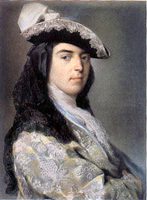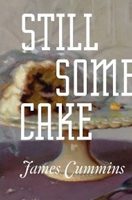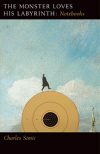January 24, 2012
Edited by David Sanders
Specimen Days
January 24, 2012
1638 – Charles Sackville, 6th Earl of Dorset, English poet (d. 1706), is born.
1767 – Antony CW Staring, Dutch lawyer/poet (Jaromir), is born.
1895 – Albin Zollinger, Swiss poet/author (Der Halbe Mensch), is born.
1924 – Thephilo Braga, Portuguese poet/politician, dies at 80.
1934 – Stanisław Grochowiak, Polish poet (d. 1976), is born.
1970 – Caresse Crosby, American poet (b. 1891), dies.
 Dorinda’s sparkling wit and eyes,
Dorinda’s sparkling wit and eyes,
United, cast too fierce a light,
Which blazes high but quickly dies,
Warms not the heart but hurts the sight.
Love is a calm and tender joy,
Kind are his looks and soft his pace;
Her Cupid is a blackguard boy
That runs his link into your face.
—Earl of Dorset Charles Sackville, 1638–1706
Poetry In The News
Announcing the 2012 Frost Medalist, Marilyn Nelson
 The Poetry Society of America is honored to announce that Marilyn Nelson is the 2012 recipient of the organization’s highest award, the Frost Medal, presented annually for “distinguished lifetime achievement in poetry.” Previous winners of this award include Wallace Stevens, Gwendolyn Brooks, Allen Ginsberg, Marianne Moore, and Charles Simic, who was the 2011 recipient.
Marilyn Nelson was born in Cleveland, Ohio, on April, 26, 1946. She is the author or translator of fourteen books, including The Homeplace (1990) and The Fields of Praise: New and Selected Poems (1997), both of which were finalists for the National Book Award. Read more at the Poetry Society.
The Poetry Society of America is honored to announce that Marilyn Nelson is the 2012 recipient of the organization’s highest award, the Frost Medal, presented annually for “distinguished lifetime achievement in poetry.” Previous winners of this award include Wallace Stevens, Gwendolyn Brooks, Allen Ginsberg, Marianne Moore, and Charles Simic, who was the 2011 recipient.
Marilyn Nelson was born in Cleveland, Ohio, on April, 26, 1946. She is the author or translator of fourteen books, including The Homeplace (1990) and The Fields of Praise: New and Selected Poems (1997), both of which were finalists for the National Book Award. Read more at the Poetry Society.
For sale: Poet’s Boyhood Home
Who knows whether famous poet, painter and jazz pianist Weldon Kees ever buried a lizard or parakeet in the backyard of his boyhood home? Former Lincoln City Councilwoman Patte Newman, who grew up in the same house, can’t speak on that topic. But Newman can tell you about the pets she laid to rest there: Aquarius the blue parakeet, two guinea pigs named Jennifer and Pepper, and David George the turtle. These are some of the memories Newman has of the stately, two-story house at 824 Garfield St. in Beatrice that will go on the market in January. Newman’s mother, Betty Nieveen, is selling the house and moving to Lincoln to be closer to her daughter. Nieveen is a retired elementary school teacher and songwriter, who in August, at the age of 84, released her first CD of big band music compositions. “I didn’t need this big house anymore. Who needs a four-bedroom house by yourself?” Nieveen said. When she and her late husband, Arnold, bought the house in 1962, they had no idea Kees had lived there. They just needed a big house for a growing family. Read more at the Journal Star.
Poet Kamau Daáood Explains The Rhyme And Reason Of Art In Black Los Angeles
 Poet and performer Kamau Daáood, at age 61, takes the stage at L.A.’s Hammer Museum following two much younger spoken word artists. Accompanied by Trevor Ware’s walking bass lines, he dives into one of his best known poems, which he wrote for his mentor, the legendary pianist and community activist Horace Tapscott. His brow furrowed as if searching for something in meditation, his deep voice growls through lines connecting vivid imagery of music, nature and spirituality. “I seek the divinity in outcasts, the richness of rebels / I will pray for you on this snaggle-toothed piano / songs for the unsung.” In another selection, his long opus in honor of John Coltrane, he begins with soft, declarative lines. “John Coltrane was a freedom fighter / Liberator of the spirit from the shackles of form… / expanding beyond the boundaries / blow away decay…” And as he builds, his voice grows sharper, taking long scatting detours, screeching in bursts like the altissimo range of a tenor sax. Read more at Neon Tommy.
Poet and performer Kamau Daáood, at age 61, takes the stage at L.A.’s Hammer Museum following two much younger spoken word artists. Accompanied by Trevor Ware’s walking bass lines, he dives into one of his best known poems, which he wrote for his mentor, the legendary pianist and community activist Horace Tapscott. His brow furrowed as if searching for something in meditation, his deep voice growls through lines connecting vivid imagery of music, nature and spirituality. “I seek the divinity in outcasts, the richness of rebels / I will pray for you on this snaggle-toothed piano / songs for the unsung.” In another selection, his long opus in honor of John Coltrane, he begins with soft, declarative lines. “John Coltrane was a freedom fighter / Liberator of the spirit from the shackles of form… / expanding beyond the boundaries / blow away decay…” And as he builds, his voice grows sharper, taking long scatting detours, screeching in bursts like the altissimo range of a tenor sax. Read more at Neon Tommy.
World Poetry
Rediscovering Tagore: To the Poet with Love
 Among a slew of fantastic artists at Indie Fuse—Wanlov, Lil Shaker, Yaa Pono, E.L. (not a Google-friendly moniker, by the way), Efya, Jayso, Jojo Abot and countless others—Mutombo the Poet had his time to shine. More than his towering presence (the nickname Mutombo says it all), it was his meticulous delivery that kept the crowd in check. And seeing a spoken word performance with a live band, in Accra, was a rare pleasure for me, and one that justifies a little back story. When we first sit down to chat, Mutombo tells me his first encounter with poetry was in high school, studying literature, Shakespeare and the like. “But that was kind of boring.” Yet after getting a bit more comfortable, he tells me, “poetry has been a part of our [Ghanaian] culture from time [immemorial].” It seems that when Ghanaians think of poetry, they think of Western, classic poetry, which tends to be presented in a disconnected, often inaccessible way, making it, in the end, pretty boring. However, poetry is as much a part of Ghanaian culture, but it is taken for granted and even ignored. Read more at The Fader.
Among a slew of fantastic artists at Indie Fuse—Wanlov, Lil Shaker, Yaa Pono, E.L. (not a Google-friendly moniker, by the way), Efya, Jayso, Jojo Abot and countless others—Mutombo the Poet had his time to shine. More than his towering presence (the nickname Mutombo says it all), it was his meticulous delivery that kept the crowd in check. And seeing a spoken word performance with a live band, in Accra, was a rare pleasure for me, and one that justifies a little back story. When we first sit down to chat, Mutombo tells me his first encounter with poetry was in high school, studying literature, Shakespeare and the like. “But that was kind of boring.” Yet after getting a bit more comfortable, he tells me, “poetry has been a part of our [Ghanaian] culture from time [immemorial].” It seems that when Ghanaians think of poetry, they think of Western, classic poetry, which tends to be presented in a disconnected, often inaccessible way, making it, in the end, pretty boring. However, poetry is as much a part of Ghanaian culture, but it is taken for granted and even ignored. Read more at The Fader.
Audience Enthralled by Recitation of Poetry by Sughars
Recital of oral poetry by Sughars is a creative pastime of villagers who like their city counterparts pour out their emotions, deprivations and social disparities through this means. Sughar is a folk literature transferred by poets by means of recitation. The exponents of oral poetry from all over Sindh gathered in Mohammed Khan Kalhoro village on Monday evening to pay tribute to a prominent Sughar, Mohammed Malook Abbasi on his 14th death anniversary. The event was held under the auspices of the Sindh Sughar Sangat Welfare Organisation. A round of poetry by Faqeer, Roshan Ali Kori, Mohammed Mureed Gadahi, Sabir Hussain Abbasi and others kept the audience spellbound throughout since they touched the current issues like poverty, floods, rains, gas and electricity shortage and high-running political tempers in the country. Read more at Dawn.com.
New Books
SELECTED POEMS by Robert Bringhurst
[Paperback] Copper Canyon Press, 270 pp., $24.00
“Robert Bringhurst may well be the poet we have all been waiting for, one who can reclaim for poetry the dignity, wit, brilliance, and wisdom it has recently appeared to have mislaid. He is without doubt a major poet, not only in the context of Canadian letters, but in that of all writing of our time.”—Poetry
Inspired by Eastern, pre-Socratic, and Native American art and ideas, Robert Bringhurst’s Selected Poems gathers work from fifteen volumes and embodies music, ecology, mythology, and philosophy. As he writes, “When you think intensely and beautifully, something happens.” Bringhurst’s passion for books and words extends to the design and typography of this gorgeous volume.
STILL SOME CAKE by James Cummins
 [Paperback] Carnegie Mellon University Press, 120 pp., $16.95
[Paperback] Carnegie Mellon University Press, 120 pp., $16.95
“Better than any American poet of his generation, Cummins, in a voice fierce, simple, and matter of fact, writes nakedly of men and violence, men and their fathers, men and their friends, men and the women and children they love. His command of formalism is still as impressive as it is unobtrusive, and with it he renders the self–that’s all of us–and our human longing to speak our truth nakedly and to be whole. I read this book, and am astonished and graced.” —Marilyn Krysl
BLUE RUST by Joseph Millar
[Paperback] Carnegie Mellon University Press, 88 pp., $15.95
“Joseph Millar’s Blue Rust is one of the most beautiful books I’ve read in years. In the tender, unflinching spirit of James Wright and William Carlos Williams, Millar explores the marginal, neglected nooks and crannies of private and public life. These poems combine remarkable simplicity of means with an even more remarkable complexity of effect . . .” —Alan Shapiro
EVERYDAY PEOPLE: POEMS by Albert Goldbarth
 [Paperback] Graywolf Press, 178 pp., $18.00
[Paperback] Graywolf Press, 178 pp., $18.00
Virtuoso poet Albert Goldbarth returns with a new collection that describes the wonders of everyday people—overprotective parents, online gamblers, newlyweds, Hercules, and Jesus. In Goldbarth’s poetry—expansive, wild, and hilarious—he argues that our ordinary failures, heroics, joy, and grief are worth giving voice to, giving thanks for. Everyday People is an extraordinary new book by a poet who “in thirty-five years of writing has amassed a body of work as substantial and intelligent as that of anyone in his generation.” —William Doreski
Recent Reviews
Anxious and Paralyzed: On Spahr, Gordon, Moschovakis and Ossip
by Stephen Burt
T.S. Eliot, writing in 1919, warned poets not to seek “new human emotions.” The “business of the poet,” he continued, is “to use the ordinary ones” known to centuries past. When you compare the poets of earlier centuries with Eliot in his active years, and then compare his years with ours, you can detect anger, hope and loneliness, among many other long-familiar emotions. But you might also sense what seem like new ones, or new compounds made from old ones under the pressure of historically new conditions. Take the “astonishment and fatigue…activated in tandem” by repetitive, illimitable systems, a description offered several years ago by the poet and critic Sianne Ngai as a diagnosis of the “stuplimity” found in the work of Samuel Beckett and Gertrude Stein. Or take the “new depthlessness,” along with “complacent eclecticism,” that Fredric Jameson identified in 1991 as part of the giddy postmodern sublime. Take the helpless, angry, guilty sadness you might feel when thinking about man-made climatological doom, or the anxious dedication (nose to the keyboard, glance over the shoulder) you might bring to a fascinating but insecure and fairly technical job. Read more at The Nation.
World Tree, David Wojahn
by Peter Campion
What most impressed me about David Wojahn’s poems, when I first encountered them, was their big music. I mean Wojahn’s engagement with the actual texture of his medium. I think, for example, of a poem from a few years back called “Sawdust,” in which the poet conjures the machines in his father’s basement workshop with the line “tintinnabulous, their whirr & snarl.” Those four words show Wojahn’s range: the movement from arcane Latinate to earthy, Anglo Saxon monosyllables correlates with his grand scope of vision—his ability to render both the bare facts of contemporary life and his sense of human history, as well as his intimations of immortality. Wojahn is obsessed with the entire sweep of human culture, and he has the tonal and structural gift to paint that whole canvas. His poetry includes allusions to Gnostic devotional poems as well as bar room conversations with Townes Van Zandt. It portrays both Vladimir Lenin and John Lennon. It reinvigorates received forms while allowing the feedback of contemporary idiom to leak through the amp. Read more at Diode.
The Monster Loves His Labyrinth by Charles Simic
 by Jason Tandon
by Jason Tandon
Charles Simic’s The Monster Loves His Labyrinth, a seemingly random collection of notebook entries and sketches, achieves a singular theme: an artist meditating upon his craft. Though neither a polished treatise nor didactic in tone, this book belongs in the 20th century American canon of poetics, somewhere between Eliot’s “Tradition and the Individual Talent” and Frank O’Hara’s “Personism.” Part I consists of biographical sketches that shed light on Simic’s predilection for juxtaposing tragic events with the absurd. He recalls Belgrade during World War Two and his early days in Chicago, establishing the significance of these experiences in his artistic development. He recounts one particular episode that will resonate with any poet: after showing his work to an older, painter friend, the friend responds, “Simic, I thought you were a smart kid. This is pure shit you’re writing!” Read more at Rattle.
Civil Wars
by William Logan
On Flies by Michael Dickman; Touch by Henri Cole; Radial Symmetry by Katherine Larson; Horoscopes for the Dead by Billy Collins; A Hundred Doors by Michael Longley & Clavics by Geoffrey Hill.
Michael Dickman’s scrawny, twitchy new poems look undernourished, but they have mean little ambitions.1 Cast in short, clipped lines (with the occasional long line thrown in as ballast), his second collection, Flies, is full of fever dreams of childhood, the haunting presence of his dead older brother, and flies, flies, flies. There are other animals as well:
My feet did not touch the floor
My heart raced
I counted my breath like small white sheep and
pinned my eyes open and stared at the door
Any second now
Any second
now.
It’s hard to write from a child’s point of view without fatally compromising the illusion or seeming cheerfully stupid. Read more at the New Criterion.
Correspondences
The Q&A: Jonathan Galassi
 Why does art have to be mainstream to be significant?
Why does art have to be mainstream to be significant?
There is a good chance that you have read something published by Jonathan Galassi. One of the wunderkinds of the New York editing and publishing world, at age 30 he was the head of Houghton Mifflin Company. He moved to Random House and then to Farrar, Straus and Giroux, where he is now president, and he was also the poetry editor of the Paris Review for a decade. Alongside nurturing contemporary poetry and new American writers, he is a poet himself and a translator of Eugenio Montale, a late Italian author.
How have publishing and editing changed over the last decade?
Publishing has changed a lot because of the ways books are delivered to the reader. Not so much with poetry so far, because e-books are not hospitable to poetry yet, though it will unquestionably happen. But I don’t think the actual editing of books has changed much at all. I think that the continuity of what I do as an editor with what I did when I started out 40 years ago is very direct. The delivery system is changing and will continue to, but the actual interaction between publisher and author is exactly the same. Read more at the Economist.
Ghost in a Red Hat
Death, friendship at center of Warren’s new book of poems
by John O’Rourke
When her close friend, the writer Deborah Tall, was diagnosed with terminal cancer, it was almost inevitable that poet Rosanna Warren would record snippets of their conversations and her own feelings of anguish in her notebooks. For Warren, recording in journals what she reads, sees, and hears is a way of making sense of the world. At the time, Warren says, she had no idea what—if any—of the material would find its way into her poetry. Read more at BU Today.
Broadsides
The State of Zapotec Poetry: Can Poetry Save an Endangered Culture?
by Clare Sullivan
¡Ay! diidxazá, diidxazá
diidxa’rusibani naa,
naa nanna zanítilu
dxi guiniti gubidxa cá.
Oh, Zapotec, dear Zapotec
language that gives me life,
I know you will not die
until the sun’s demise.
– Gabriel López Chiñas, “Diidxazá”
In 1981 in Juchitán, Mexico, the local COCEI political party ousted the national PRI party that had been ruling Mexico for decades. This victory gave control to local people (most of them indigenous) over their political destiny. The city of Juchitán is located on Mexico’s Isthmus of Tehuantepec, the narrow strip of land that connects the Yucatan Peninsula to the rest of Mexico. Spain invaded the region in the sixteenth century, the Mexican government subsumed it into the national system in the nineteenth century, and, beginning in the twentieth century, global superpowers sought passage from the Gulf of Mexico to the Pacific Ocean. Yet local people have always fought to preserve their culture and language and to reconcile it with outside influences. This battle has been waged in and with their language, Zapotec, the oldest written language in America. Read more at World Literature Today.
Technique’s Marginal Centrality
Poems of the doomed.
by Clive James
At the court of the Shogun Iyenari, it was a tense moment. Hokusai, already well established as a prodigiously gifted artist, was competing with a conventional brush-stroke painter in a face-off judged by the shogun personally. Hokusai painted a blue curve on a big piece of paper, chased a chicken across it whose feet had been dipped in red paint, and explained the result to the shogun: it was a landscape showing the Tatsuta River with floating red maple leaves. Hokusai won the competition. The story is well known but the reaction of the conventional brush-stroke artist was not recorded. It’s quite likely that he thought Hokusai had done not much more than register an idea, or, as we would say today, a concept. A loser’s view, perhaps; though not without substance. If Hokusai had spent his career dipping chickens in red paint, he would have been Yoko Ono. Read more at the Poetry Foundation.
Drafts & Fragments
Living Well Is the Best Revenge
 As noted above, today is the 42nd anniversary of the death of Caresse Crosby. To note that she was the inventor of the modern bra, co-founder, with her husband Harry Crosby, of Black Sun Press, and the confederate of Pound, Lawrence, Dali, Henry Miller, and others, is to recognize that part of the iceberg unsubmerged. I tried to find a poem by her but to no avail. But I did find her story. To say that she is unremembered is not to say that she was not memorable.
As noted above, today is the 42nd anniversary of the death of Caresse Crosby. To note that she was the inventor of the modern bra, co-founder, with her husband Harry Crosby, of Black Sun Press, and the confederate of Pound, Lawrence, Dali, Henry Miller, and others, is to recognize that part of the iceberg unsubmerged. I tried to find a poem by her but to no avail. But I did find her story. To say that she is unremembered is not to say that she was not memorable.
Envoi: Editor’s Notes
Ronsard—Just Say “Yes”
As a former bookstore owner, I am almost preternaturally opposed to Amazon. Not because of its newfangledness— I share my enmity towards it with Barnes and Noble as the destroyer of the small, curated bookshop. But wait. . .what’s this? Free books of poetry? I contain multitudes and they are warring against each other. I came across a blog post the other day in which the blogger was giving away his collection of short fiction as a Kindle download. After installing the Kindle app and downloading the stories, I started looking around. Here were free books by the likes of Apollonaire, Rimbaud, Baudelaire, DuBellay. . . Okay, they were in French, but still. . . The very definition of aspirational reading. So aspirational, in fact, that I noticed that in some instances where usually there would be a section under the title “Other people who purchased this title also looked at. . . ” there was nothing. I was alone in a corner of Amazon no one else had found! That’s aspirational. To my good but paranoid friends at the University of Chicago Press: Sorry, the process was painless. The books were easily accessed, “purchased,” and opened. Sometimes anonymity is worse than piracy. Truth is, I’m making the move. Odd to think of Pierre de Ronsard as a gateway drug. But I’m hanging tight as the paradigm shifts. I just hope my shirt doesn’t get caught in the Tilt-a-whirl. (Cue: Bruce.)
—David Sanders